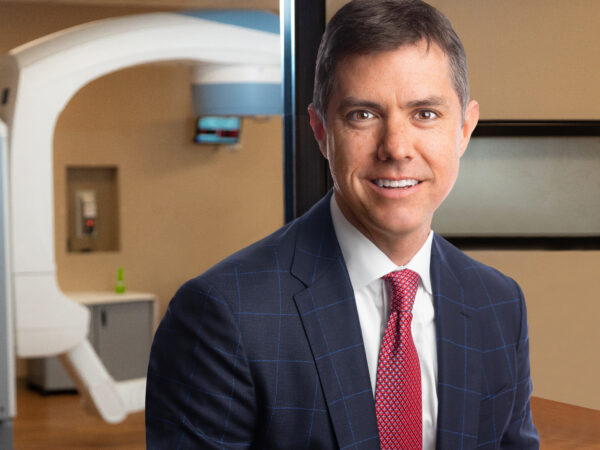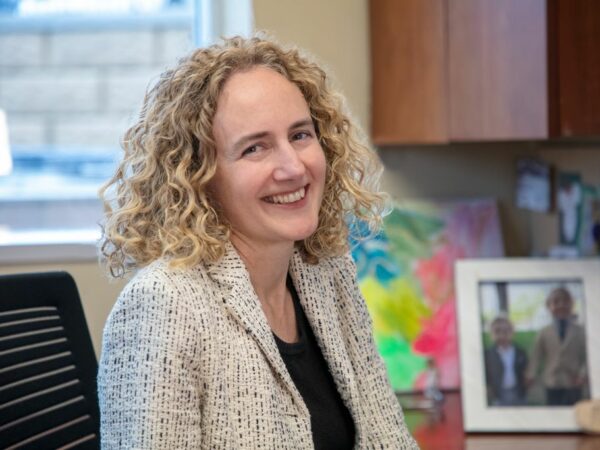
April is designated Esophageal Cancer Awareness Month by the American Association for Cancer Research. It is dedicated to raising awareness of cancer that creates tumors along the upper gastrointestinal muscular tube that carries foods and liquids from the pharynx to the stomach. Esophageal cancer is a serious disease, and unfortunately, it is usually not diagnosed until later stages, when tumors have begun to block food from traveling to the stomach.
In the U.S., cancer of the esophagus accounts for about 1% of cancers; the American Cancer Society estimates there will be about 22,370 new cases diagnosed in the U.S. in 2024. But it is on the increase, and much more common in other parts of the world, such as Iran, northern China, India, and southern Africa. Men are three times more likely than women to contract the disease.
Esophageal Cancer can start anywhere along the length of the esophagus, but there are two main types in which each develops in a different kind of cell.
Adenocarcinoma
Adenocarcinoma is the most common type of esophageal cancer in the United States. It starts in the glandular cells in the lower part of the esophagus and may occur at or near the junction of the esophagus and the stomach, the gastroesophageal (GE) junction. Normally, these cancers are caused by acid reflux and are linked to obesity.
Squamous cell carcinoma
The most common type of esophageal cancer worldwide is squamous cell carcinoma. It starts in the squamous cells that line the esophagus. These cancers are usually found in the upper and middle part of the esophagus. Normally they are caused by heavy alcohol consumption and smoking, but there are other documented risk factors as well.
Certain factors can increase your risk of developing esophageal cancer.
- Chronic acid reflux, or GERD
- Tobacco use
- Heavy alcohol consumption
- Obesity
- A pre-cancerous condition called Barrett’s esophagus.
- Having a close relative with esophageal cancer
Radiation Is a Proven Therapy
At MRO, we use radiation to target and destroy cancer cells. Radiation treatment plays a vital role in esophageal cancer treatment, often combined with surgery or chemotherapy and, chemoradiation – chemotherapy with radiation therapy – can be curative for some early-stage cancers.
Radiation therapy can shrink tumors before surgery, leading to easier removal and improved surgical outcomes. Chemotherapy and radiation therapy administered together before surgery is the standard treatment for early-stage esophageal cancer. Chemotherapy combined with radiation therapy is often the primary treatment for cancer that has spread beyond the esophagus. Even in advanced stages, radiation therapy can provide palliative care, helping to relieve symptoms such as pain and difficulty swallowing.
Common type of radiation used:
External-beam radiation therapy
This is the type of therapy that MRO care teams use most often to treat esophageal cancer. We use a machine called a Linear Accelerator (LINAC) to focus radiation with precision and accuracy on the part of the body that needs cancer treatment. External beam radiation therapy is like an X-ray, but the radiation has a higher intensity. The length and frequency of the treatment vary, depending on the extent and the type of cancer.
Building a Treatment Plan: Working with Your MRO care team
If you are diagnosed with esophageal cancer, an open and honest conversation with your MRO Radiation Oncologist is a critical first step. Here are some questions to consider asking your doctor:
- What stage is my cancer, and what are the treatment options available?
- Is radiation therapy recommended for my diagnosis, and if so, what type?
- What are the potential side effects of radiation therapy?
- What can I do to manage potential side effects?
Living with Esophageal Cancer: Support and Resources
A diagnosis of esophageal cancer can be overwhelming, but it is important to remember you are not alone. Here are some resources that can offer support and guidance:
- American Cancer Society: https://www.cancer.org/
- National Cancer Institute: https://www.cancer.gov/)
- The Esophageal Cancer Action Network: https://ecan.org/
The cancer-fighting specialists at MRO have over 40 years of experience turning fear into confidence, and helping patients become active participants in their care journey.


